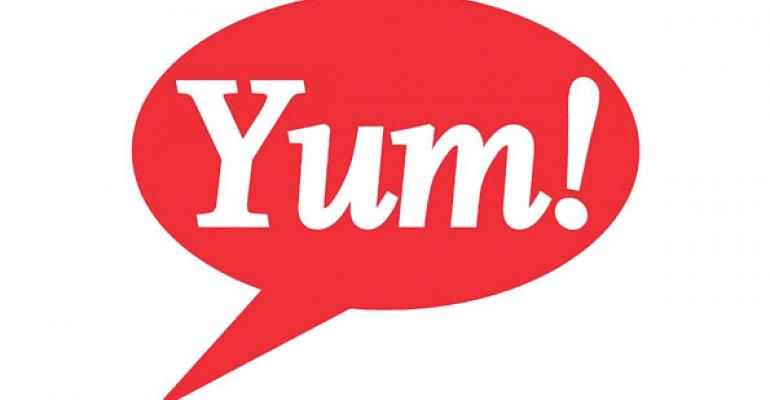Yum! Brands, Louisville, Ky., reported this week that it estimates third-quarter ended August 31 same-store sales for its China division to drop by about 13 percent compared with the same period last year.
“Since July 21st, Yum! Brands' China division has experienced a significant, negative impact to sales at both KFC and Pizza Hut, following adverse publicity regarding improper food handling practices by former supplier, Shanghai Husi, a division of OSI,” the company stated in a Securities and Exchange Commission filing on Wednesday.
“While sales are beginning to rebound, they continue to be negative,” it said, in the statement. “Our brands have proven resilient over time and we expect this to be the case with this situation as well.”
Yum’s statement added that “The company plans to vigorously pursue legal action against OSI and Husi to recover damages from the incident.”
One analyst wasted no time lowering earnings-per-share (EPS) estimates.
“This [announcement] lowers our Q3 EPS estimate by $0.06, to $0.88,” according to a statement from Philadelphia-based Janney Capital Markets. “This takes down our full-year 2014 EPS forecast by $0.06 cents, to $3.44.” Their current target stock price is $71.48.
Yum! Brands’ statement comes only weeks after the company reported a banner second quarter ended June 14, when profits soared 18.9 percent compared with a year earlier, to $334 million. More impressive, the company’s China division’s same-store sales increased 15 percent, and reported a staggering 188-percent jump in operating profit for the quarter.
The Chinese operation overshadowed the company’s domestic units’ flat quarterly earnings. In the United States, Yum! Brands posted mixed results for the second-quarter, as same-store sales fell 2 percent at KFC and 4 percent at Pizza Hut. Thanks to the increasingly popular introduction of a breakfast platform, performance at the company’s Taco Bell banner rose 2 percent for the quarter.
Yum! Brands credits its reputable status of being an “upstanding Western food company” for its success in Asia. But these increases also came amid an array of challenges, one of the biggest being China’s concern regarding contamination of the country’s poultry supply due to Avian flu. During fiscal 2013, this issue, along with fear of a renewed outbreak of bird flu, impacted the division’s operating profit, which fell 23 percent.
The contaminated food scandal then rocked the industry in July. Workers at Shanghai Husi Food Company, a division of American-owned OSI Group (the Asian supplier for Yum! Brands, as well as Oak Brook, Ill.-based McDonald’s and other restaurant companies), were recorded mixing fresh meat with product past its expiration date and scraps from the floor, and then repacking it for use.
To add more salt in Yum’s wound, China is also battling a sluggish economy, due to rising debt levels and an overall economic restructuring. This is forcing consumers to guard discretionary income and change food consumption patterns, an issue which could take a further toll on Yum! Brands Chinese operations.
“While the China division has started to show signs of improvement, it is still not out of the woods, given the economic slowdown in the nation,” according to a statement from Zacks Investment Research, Chicago.
Recognizing that the company has survived similar threats in the past, analysts did not revise end of year same-store sales projections. “At this time, we retain our China same-store sales projections and EPS estimates for Q4 2014 and for the full-year 2015, with easy year-over-year comparisons helping out,” Janney reported.
Yum operates or franchises more than 40,000 restaurants in more than 125 countries.





